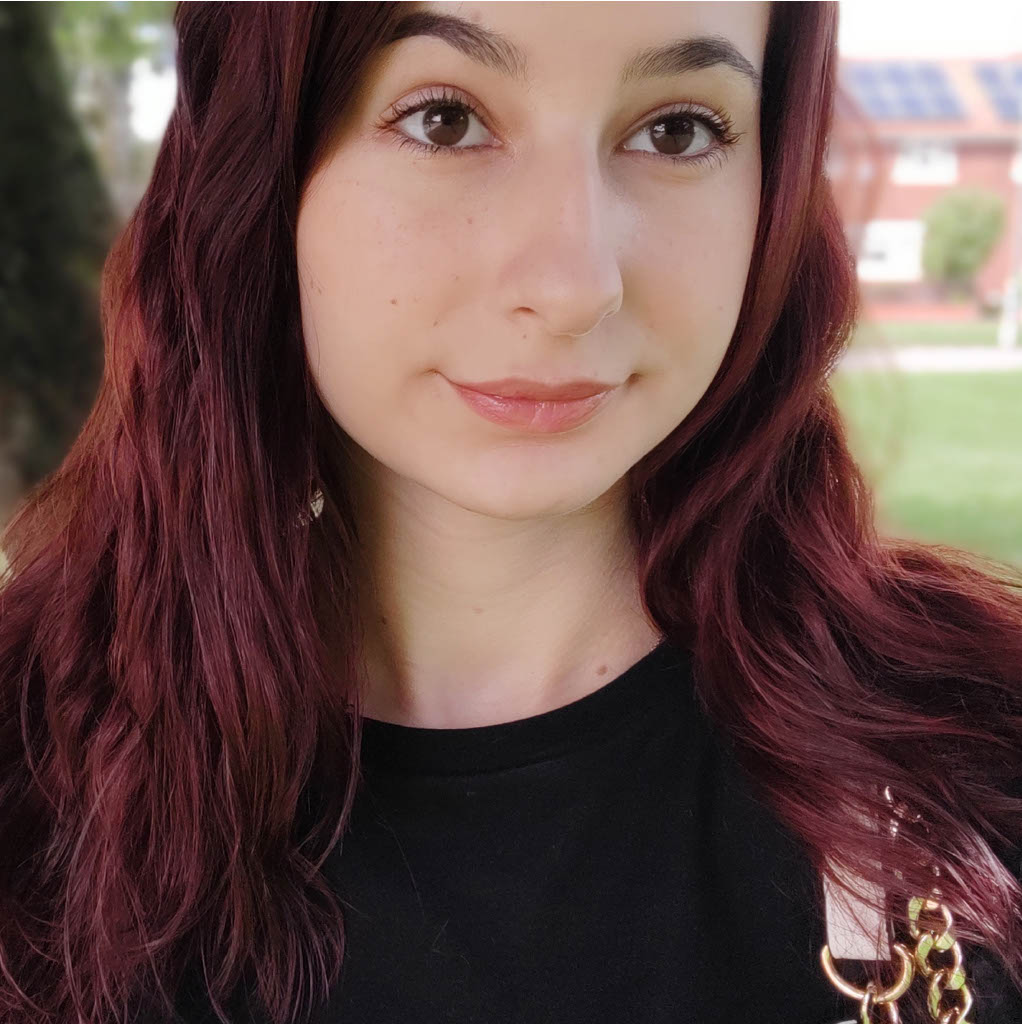Initially wanting to study Medicine, Wiktoria decided to come to Salford to study Biomedical Science, and loved it so much she’s now studying a Masters degree in Microbiology. Read on to hear more about her story.

“With the BSc in Biomedical Science, you will have the knowledge and the skills to be a proficient and confident scientist.”
Why did you choose to study at Salford?
I chose to study at Salford because of its vibrant community and research-intensive environment. I deeply value the efforts of scientific multidisciplinary teams working toward a common goal, which is vastly cultivated at the university. The University of Salford perfectly aligns with my academic and personal goals, and I am eager to continue to contribute to and benefit from all the university has to offer.
What made you want to study your course?
Initially, I wanted to study medicine as I have always been passionate about healthcare and being able to make a difference. As I have been unable to gain hands-on experience in the medical field, and my college education has been severely impacted by Covid-19 pandemic, I had not been successful in securing a place on my first choice. I had gone through the clearing process and secured a place on the BSc Biomedical Science course at the University of Salford. At that point, I had no idea that this course would change my career trajectory completely. From that point onward, I developed a newfound passion for research and an appreciation for academia. My interest in biomedical research kept evolving for the 3 years of my undergraduate programme, and I graduated with a 1st Class Honours degree, enriched with valuable experiences that have shaped my journey.
Tell us a bit about your course. How would you explain your course to someone who knows nothing about it?
In your first year, Biomedical Science course teaches you the absolute foundations of the human body, starting with human anatomy, cell biology, genetics, and microbiology. On top of these foundations, you build key professional and technical biomedical skills via tutorials where you learn about academic integrity, self-reflection, career progression, standards of proficiency, as well as laboratory sessions where you find out how to use most common equipment, like the micropipettes, pH meters, microscopes. Later on you learn how to perform staining, titration, histology studies, how to use a microscope, how to do serial dilutions, cell cultures, and so on. In your second year, the complexity increases to involve learning about human physiology, the specifics of haematology and transfusion, focusing on clinical and molecular genetics, then moving on to human pathophysiology, medical biochemistry, and translational research skills. Your laboratory sessions will include more specific equipment and you will have a lot of opportunities to practice your scientific writing when compiling lab reports. In your final year, you will study clinical immunology, applied biomedical science, medical and public health microbiology, and cell pathology. In this year, you will also undertake an independent supervised lab or non-lab based project where you will get a real sense of what it is like to conduct research and report your findings. Altogether, you will have the knowledge and the skills to be a proficient and confident scientist.
What support is available for you throughout your studies? What are the teaching/school like?
The UoS academics are very supportive and inspiring, they motivate you to keep going and their passion for their modules really does shine through. Your personal tutor is your first point of contact regarding anything academic or personal that you may need support for, and in my experience, they have been really helpful and offered constructive feedback. There are many facilities on campus, and we have an askUs service which is a one-stop-shop for any of your inquiries whether it be funding, learning difficulties support, mental health support, digital IT support, quite literally everything. The library team is very helpful too, and always happy to help out.
Tell us a bit about your career journey since you graduated from Salford. How did your course/your time here help you with this?
I have graduated and I am currently studying an MPhil Microbiology course for which my undergraduate degree prepared me by equipping me with the key skillset and knowledge that I am utilising and expanding right now.
What is your favourite thing about being a University of Salford student?
The sense of community and how everyone is very supportive of one another. I have made lots of friends with whom I am still in contact.
The student discount is also quite handy!
Where do you want your degree to take you? What is your dream job and how do you think your degree will help you get there?
I am in active pursuit of gaining hands-on experience and expertise in the fields of microbiology and molecular genetics, and my dream job would be to become a researcher and be able to contribute knowledge to the academic community. I hope that with the technical and interpersonal skills that I have gained from my degree, I will be able to to just that.